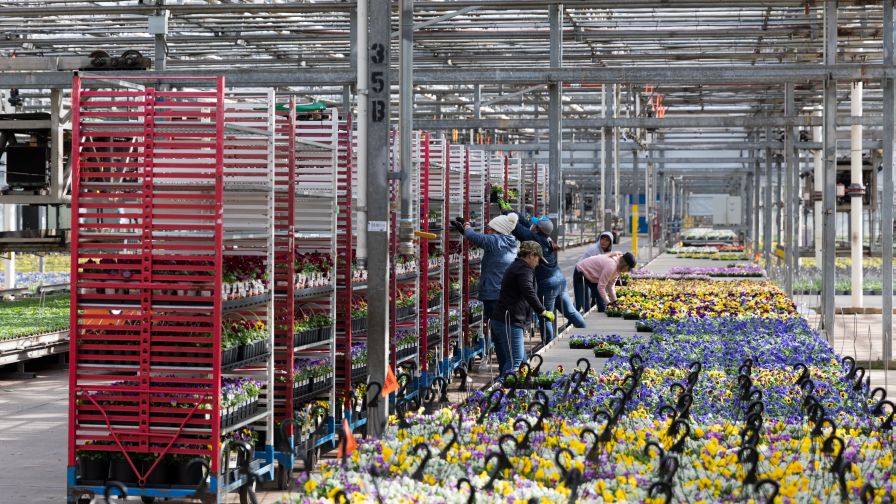Online Only: The Next Step In Greenhouse Films
Greenhouse film doesn’t last forever. Well, maybe in landfills, but it definitely doesn’t last that long on your greenhouses. Just think about it. If you don’t recycle that film, it’s going to sit in a landfill somewhere, taking up space.
The thought of going that route sends chills up Karen Kritz’s spine. Kritz heads up the plastic recycling program for the New Jersey Department of Agriculture. She created the program back in the mid-90s when then N.J. Secretary of Agriculture, Arthur Brown, urged Kritz to do something about the large volume of greenhouse film piling up in the Garden State’s landfills.
Kritz used Oregon and Florida’s programs as a reference point. She saw that both programs had their own shortcomings, so she made the necessary adjustments for her burgeoning New Jersey operation. In 1997, the first greenhouse film collection took place.
Now, “We average over a half-million pounds a year in plastic collection,” Kritz says. Since the program’s inception, over six million pounds have been collected. Kritz has helped people throughout the country set-up programs over the phone. She has also worked with other countries (Australia, Italy and Mexico) via eMail.
Exercise Your Options
Believe it or not, greenhouse film is in demand. “Because it’s clean,” adds Kritz. When she started the program in 1997, they brought in around 200,000 pounds of plastic. 2007 saw 714,000 pounds come into their facilities. “We were down in 2008 because large growers are now directly marketing it to brokers (and those who make product out of it),” she says. “Big growers are bailing it themselves and selling it–skipping us all together.”
The New Jersey Department of Agriculture collection sites also sell what they’ve collected to whoever offers up the best price for the plastic. In 1997, this recycled plastic went for 10 cents a pound. By the time the program got off the ground, the price dropped to a couple cents. “Even in a poor market, our program is still excellent for keeping the plastic out of the landfills,” she says.
For those growers interested in recycling their greenhouse film, a state like New Jersey has three options. One, take it to the landfill for $65 a ton. Two, get it bailed and recycled by the state for approximately $20 a ton (cost of the tipping fee). Or go through a broker. This option can be the most profitable for a grower, earning upwards of $200 a ton for their plastic.
For more information on greenhouse film recycling and how to get a program started up in your area, contact Karen Kritz at (609) 292.5536.









